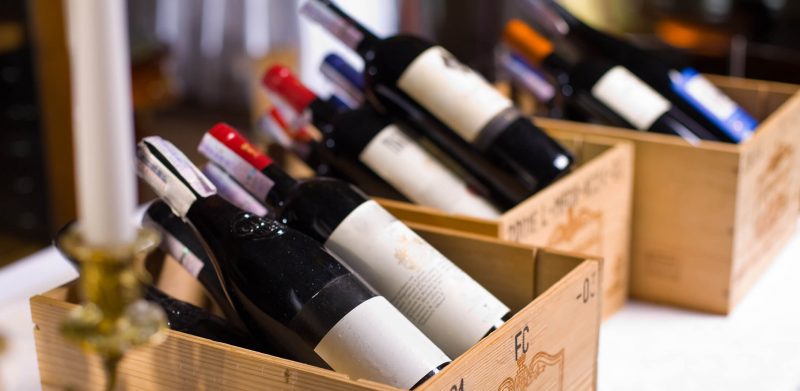
How to import wine into Canada
Whether you are simply returning from travel abroad with a few bottles of your favorite wine or spirits, receiving a gift from a supplier or looking to actively import rare vintages to serve in your restaurant, there are a number of things that you must be aware of before you import wine to Canada. The subjects range from federal and provincial regulations, limitations on allowed quantities, taxes and excise duties, permits, required documentation and a number of other factors.
For small amounts and personal consumption, the requirements to import wine into Canada differ greatly than those for larger amounts for collection or commercial purposes.
Without being subjected to taxes and duty or requiring a permit, returning residents and visitors may import up to the following amounts:
- 1.5 litres (53 imperial ounces) of wine
- 1.14 litres (40 ounces) of liquor or spirits
- 8.5 litres of beer or ale
As an example, if you are returning to Canada from abroad and wish to import 5 litres of your favorite red wine, each bottle having cost you $20 for a total of $100, permits will be required and taxes and duties will be calculated as follows:
Customs duty is applied at the rate of $.0187 per litre. In addition, the SAQ may increase the value depending on the value of the product. There is also a specific tax of $1.50 per litre plus GST (5%) and QST (9.975%).
W2C Customs Brokers can help you make light work of the myriad of things to know. We pride ourselves on having the know-how to make it quick and easy for all of our valued customers to import wine into Canada.
Regardless of your province of residence or business, any time you import wine to Canada, it falls under the authorityof the CSBA (Canada Border Service Agency). Imported wines and spirits are subject to customs duties, consumption tax and excise tax, all of which are the responsibility of the CSBA to collect. Additionally, provincial regulatory bodies may require import permits and regulate allowable quantities when you import wine into Canada.
Each Canadian province has its own regulatory body, all operating independently of each other, with regulations varying from one province to the next. Importing wines and spirits in Quebec, for example, falls under the regulation of the SAQ (Société des alcools du Québec), whereas in Ontario, the LCBO (Liquor Control Board of Ontario) is the governing body. It should be noted that wines and spirits crossing the border from province to province are also regulated and as such, are subject to taxes and duty.
It is important to know that when you import wine to Canada, the duties, excise tax and cost of permits all differ from province to province and aregenerally based on the type of alcoholic beverage, as well as alcohol content. Furthermore, in certain provinces, importing alcohol can only be done by the provincial authority and as such, cannot be otherwise performed, even with the assistance of a customs broker.
This is the case in Ontario with the LCBO but in Quebec, we are fortunate that even with the regulations imposed by the SAQ, an individual may acquire permits to import wine into Canada and pay the required tax and duties, both of which are greatly facilitated by your customs broker.
Whether purchased or offered as gifts, when you import wine to Canada, regulations apply to individuals and commercial importers alike, including visitors, returning residents, immigrants and corporations. Residents returning from trips outside of Canada, for example, are allowed to bring a few bottles of wine or spirits back with them without a permit.The allowable amount is based on the type of alcoholic beverage and the duration of their stay outside the country. On the other hand, a landed immigrant may be allowed to import a wine cellar into Canada (up to a maximum amount) if the required permits have been obtained prior to arrival.
To avoid costly surprises, it is important to be aware of required permits and allowable quantities. As such, before you import wine to Canada, it is good practice to check with the appropriate authority in the province of arrival to be aware ofthe area’s specific requirements for permits, procedures and limitations on allowed quantities, if any.
You can contact the CSBA and the governing provincial authority directly, or simply call or email W2C. We’ll be happy to assist you in making sure your import is compliant with imposed limitations, that you have any required permits/ documentation and finally, that you’re aware of the taxes and duties that will need to be collected upon arrival. Remember that gifts, purchases and wine collections, large or small are all controlled.
W2C can certainly assist you in navigating the complex network of regulations and controls so when you import wine to Canada, it will be a quick and hassle-free experience.